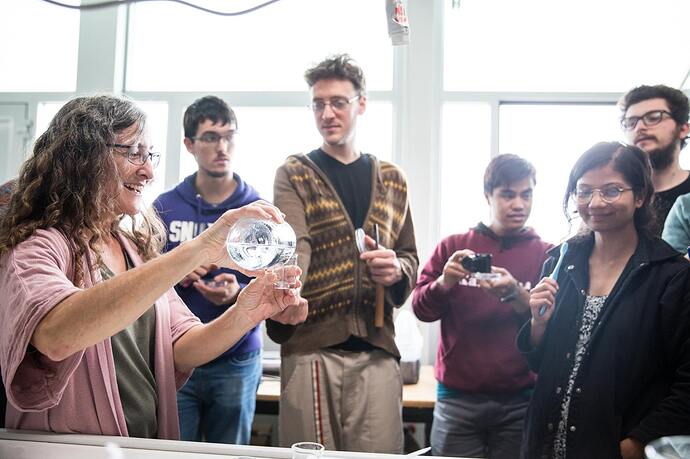Rachel Aronoff
Facilitator at openvillage Festival
#genetics opensource #neuroscience #biohacking #DoItTogether research learning
I’m a biologist and my big passion is looking into the different things that we can choose to avoid, that aren’t good for our health. The concept of ”genomic integrity” is supposed to be a dynamic big picture concept, not simply about DNA sequence, but all the molecular genetic details of cells. Protection of genomic integrity can also be thought of as behavioral. For instance, we know that sunlight affects DNA; so if you avoid it, it’s easier to reduce the risk of melanoma”.
@Rachel joined edgeryders after meeting Winnie at the Biofabbing convergence at CERN earlier in spring. She’s a research scientist with a PhD in microbiology (UW, Seattle, USA) and one of the Co-Presidents at Hackuarium, an open biolab hosted by UniverCité, a 'hub of innovation’ in Renens, Switzerland, including a MakerSpace, FabLab and co-working space.
At openvillage, Rachel is hosting a workshop on DIT (do it together) micronucleus testing, where participants are paired up to assess their baseline levels of DNA damage and help each other analyse results. She says anyone can participate by collecting cells with toothbrushes, staining and observing them. The bigger challenge is to make sure to count enough cells for statistical analysis (500 to 1000).
What’s the potential of opensourcing DNA damage tests?
This is relevant for health protection. We would understand better how the choices we make influence our health, and risks associated with it. At the very basic level, people who start doing it might think about: “how can I change my lifestyle?” Just like you use a Fitbit app (tracks your physical exercising), you might think: “oh, how many micronuclei do I have today?”
While it is educative, the method has some way to go to be self-contained. The reasons have to do with the complex correlations with lifestyle choices and also data analyses. Another issue is confidentiality - participants would need to provide as much information as they think is relevant for a correlative analysis. But we are still learning what might impact genomic integrity most. For instance, smoking damages DNA directly and prevents its repair, another reason it is most highly-correlated risk factor for both ageing and disease. Not least, taking this testing further also means figuring how to avoid using compounds that might damage the environment themselves. For instance, the methylene blue used to stain cheek cells to see micronuclei might also impact genomic integrity, so should not just be poured down the drain. We are trying to make protocols based on ‘kitchen sink ingredients’ that will still allow us to do the micronucleus assay and another test for DNA breaks in cells, the comet assay.
Rachel’s workshop is part of the Citizen Science and Open Science track at openvillage. Get in touch with her and join the conversation here!

